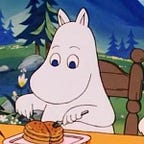What if?
“Tissues are like lives. There are always more.”
Thinking about alternate universes and possibilities should be approached with caution. If we don’t tread lightly, those thoughts will travel along our beings and leave us with nothing but regret.
In Matt Haig’s The Midnight Library, main character Nora is told that “doing one thing differently is often the same things as doing everything differently”. So according to that, every decision we make, no matter how small — like what time we leave the house for work or the color of our next toothbrush is — could unravel different timelines in our respective futures.
No pressure, right?
The dilemma is that we don’t know which one of our acts will matter until we reach the ending. Enter the Midnight Library, a plane between life and death in which each supposed book are filled with an unlived life of a single person. The books are abundant, and each contains one life, which means there are unimaginable possibilities of how a person’s life can take course.
Here, Nora has a chance to discover the different versions of herself she could have been, whether the difference between the versions was caused by one huge change the alternate Nora made in that life, or if it’s hidden a small, mindless day-to-day decision she probably wouldn’t even notice.
“Regrets don’t leave. They weren’t mosquito bites. They itch for ever.”
What would happen if a person is able to see all the lives they could have lived laid out before them? What would the person feel? Despair, longing, regret? Or maybe driven, inspired? Nora’s story proves that it most definitely isn’t as simple as that.
Humans are rarely satisfied. Take Maslow’s pyramid of hierarchy, for example. According to that idea, simply put, a person becomes “whole” if only they manage to satisfy every single level of the pyramid. If that’s the case, then the goal is to complete the pyramid in one’s lifetime. And it’s no easy feat. The radical conclusion to that notion is that humans will spend most (or all) of their lives wanting something more.
Generally, wanting is not a bad thing. Desire is one of our most natural instincts. So, everyone wants something. But if wanting is all that we do, all of the time, isn’t that exhausting? When we want something, we are either working towards it or anxiously waiting for it.
And if we don’t get what we want, what happens then? Sometimes yes, we learn to let go. Other times though, we let ourselves sit alone, with an empty gap that was supposed to be filled with the object of our desires, but instead regret takes its place.
Regrets can come from our acts or the choices we made, of the situation we put ourselves in or let ourselves be put in, or of not making those choices or being in those situations in the first place.
“But sometimes the cat is just dead and dead.”
When we feel regret, we deeply wish we could undo our mistakes or have done something differently. But the thing is, those decisions might not even matter that much anyway. I mean, at least we don’t know.
You and I, we are not in The Midnight Library. We have no way of knowing whether a change of decision will act in our favor or not. Sometimes the cat is just dead and dead; different acts can still lead to the same outcome.
What I’m trying to rationalize is this: Regrets exist as inevitable experiences, but they don’t necessarily exist to linger.
The life each of us are living is not linear, and our inner perception of that life is not either. We can be okay with it for three days, and unsatisfied during the next three.
I guess saying “life is a tissue” could also mean that. Endless possibilities of how we perceive and experience the same reality.
“[Life is…] acres of disappointment and monotony and hurts and rivalries but with flashes of wonder and beauty.”
Your move.
